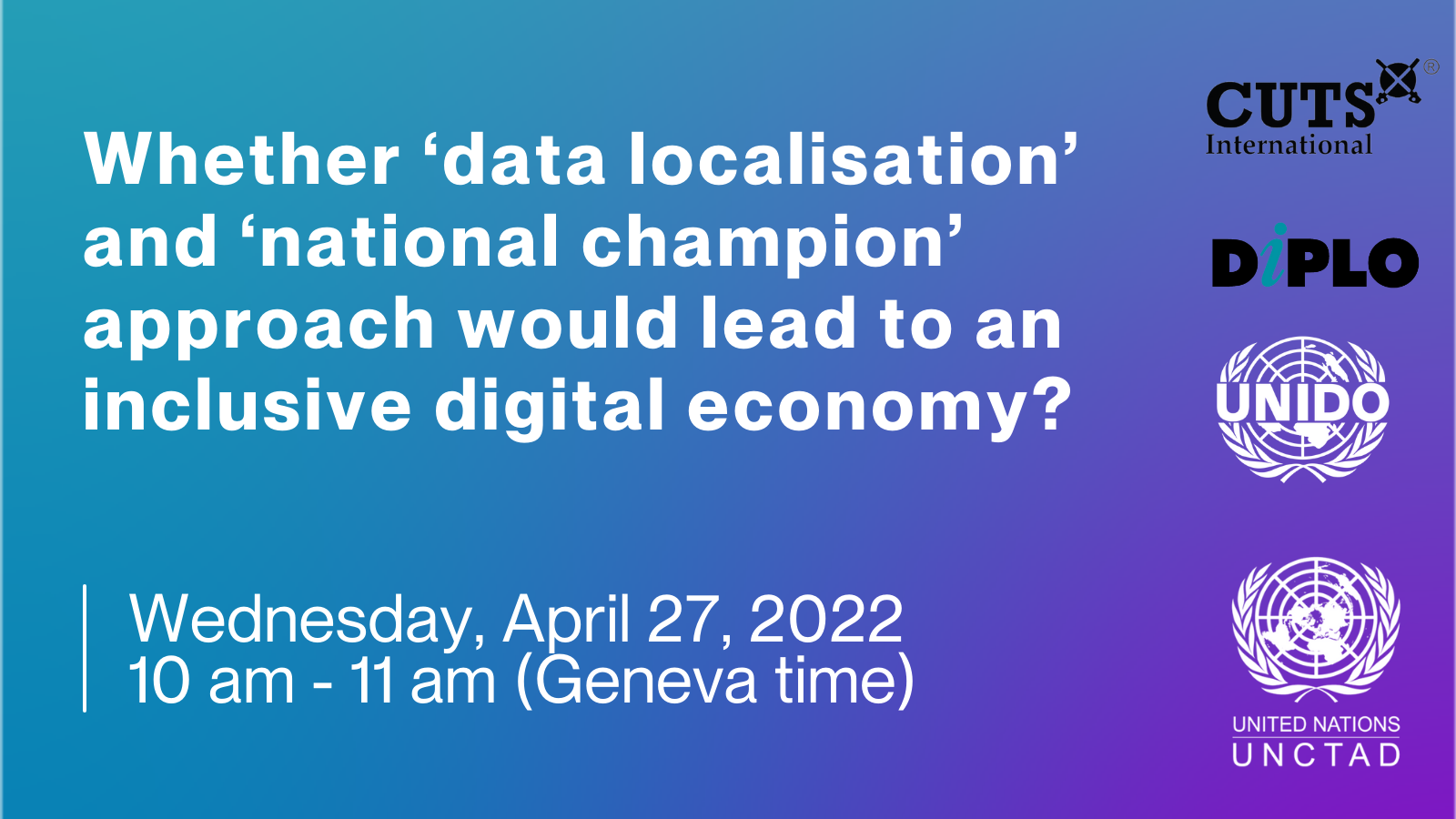
The COVID-19 pandemic has established the imperativeness of e-commerce, including as a useful tool aiding economic recovery. It has accelerated the digitalization of economies around the globe. However, it is understood that the digitalization process is also posing certain challenges that include acceleration of inequality within and across countries.
Absence of any multilateral framework in this regard gives governments enough policy space to craft their domestic regulations.
Accordingly, the emerging strategy is to support domestic digital players to become globally competitive – national champions. Data localisation policy is a part of such protectionist strategy, built upon the concept of data sovereignty. Arguments like cyber security and better access to data by law enforcement agencies are also used to support such policy interventions. Few leading countries also seem to be inclined towards data localisation policy.
On the other hand, there are some good examples of countries that have played role in advancing liberal view on data flows through concrete policy frameworks, such as the Osaka Track, championed by Japan under the G20, and the Digital Economy Agreements that Singapore has entered with other countries (e.g., DEPA and SADEA).
Notably, restrictions on cross-border flow could severely harm cross-border e-commerce. This in turn would harm consumers’ interests and reduce opportunities for small and medium enterprises (SMEs) in cross-border trade. National champion approach could also negatively impact domestic competition and tech innovations.
In this background, CUTS International, in collaboration with UNIDO and Diplo Foundation, organized a virtual moderated and interactive panel discussion on 27 April 2022 as part of the UNCTAD eCommerce Week 2022.
The panelists discussed: whether it is necessary to create globally competitive national champions to expand the scope for value creation and capture in the digital economy? If yes, whether it is necessary to pursue data localisation policy for creating such champions? How would such an approach impact the cross-border eCommerce ecosystem? How will it affect industrial development, particularly that of SMEs? What will be the impact on consumers and on domestic market competition? And above all, whether data localisation and national champion lead to an inclusive digital economy?

Pradeep S. Mehta
Secretary General, CUTS International

Rashid Kaukab
CUTS International

Bernardo Calzadilla-Sarmiento
Director, Department of Digitalization, Technology and Innovation, UNIDO

Marilia Maciel
Digital Policy Senior Researcher, Diplo Foundation

Alison Gillwald
Executive Director, Research ICT Africa

Lorrayne Porciuncula
Executive Director, Datasphere Initiative

Subscribe to the Datasphere Pulse for updates on data governance news and activities.
The Datasphere Initiative is a global network of stakeholders fostering a holistic and innovative approach to data governance to build agile frameworks to responsibly unlock the value of data for all.
@2024. Datasphere Initiative. All rights reserved
Privacy Policy